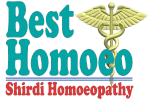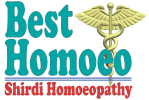Skin complaints can vary widely in terms of causes, symptoms, and severity. Skin is the body’s largest organ and serves as the first line of defense against external factors. Understanding common skin conditions can help in identifying appropriate treatments and preventive measures. Below is a detailed overview of common skin complaints and their management:
1. Acne
- Description: A condition where hair follicles become clogged with oil and dead skin cells, leading to pimples, blackheads, or cysts.
- Causes: Hormonal changes, genetics, bacteria, excess oil production.
- Symptoms: Red pimples, blackheads, whiteheads, cysts on the face, back, shoulders, and chest.
- Treatment:
- Topical treatments (benzoyl peroxide, salicylic acid).
- Oral medications (antibiotics, hormonal therapy).
- Proper skincare routine with non-comedogenic products.
- In severe cases, retinoids like isotretinoin.
2. Eczema (Atopic Dermatitis)
- Description: A chronic inflammatory skin condition characterized by dry, itchy, and red patches.
- Causes: Genetics, environmental factors, immune system dysfunction.
- Symptoms: Itchy, dry, red, and inflamed patches, commonly found on the face, neck, hands, and knees.
- Treatment:
- Moisturizers to keep the skin hydrated.
- Topical corticosteroids or calcineurin inhibitors to reduce inflammation.
- Avoiding triggers like harsh soaps, allergens, and stress.
- Oral antihistamines for itch relief.
3. Psoriasis
- Description: An autoimmune condition causing the rapid turnover of skin cells, leading to scaly, thickened patches.
- Causes: Immune system triggers, genetics, stress, infections, and certain medications.
- Symptoms: Red, thickened, and silvery-scaled patches, commonly on the scalp, elbows, knees, and lower back.
- Treatment:
- Topical treatments (steroids, vitamin D analogs).
- Phototherapy (light therapy).
- Systemic medications (biologics, methotrexate).
- Moisturizers to reduce dryness and scaling.
4. Rosacea
- Description: A chronic skin condition characterized by facial redness, visible blood vessels, and sometimes pimples.
- Causes: Genetics, environmental factors, alcohol, spicy foods, hot drinks, sun exposure.
- Symptoms: Persistent facial redness, visible small blood vessels, swelling, and, in some cases, bumps and pustules.
- Treatment:
- Avoiding known triggers (alcohol, spicy foods, sun exposure).
- Topical treatments (metronidazole, azelaic acid).
- Oral antibiotics in severe cases.
- Laser therapy for visible blood vessels.
5. Dermatitis (Contact Dermatitis)
- Description: Inflammation of the skin due to contact with an irritant or allergen.
- Causes: Exposure to chemicals, soaps, plants (poison ivy), or allergens like nickel.
- Symptoms: Red, itchy, and inflamed skin, sometimes with blisters or cracks.
- Treatment:
- Avoiding the irritant or allergen.
- Topical corticosteroids to reduce inflammation.
- Moisturizers to repair the skin barrier.
- Oral antihistamines for itch relief.
6. Hives (Urticaria)
- Description: A skin reaction characterized by red, itchy welts, often triggered by allergens, stress, or infections.
- Causes: Allergies, stress, infections, certain medications, temperature changes.
- Symptoms: Red, raised, itchy welts that may come and go.
- Treatment:
- Antihistamines to control itching and swelling.
- Avoiding known triggers (foods, medications, stress).
- Severe cases may require corticosteroids.
7. Fungal Infections (e.g., Athlete’s Foot, Ringworm)
- Description: Infections caused by fungi that thrive in warm, moist environments.
- Causes: Fungal organisms, such as dermatophytes, yeast (candida).
- Symptoms: Itchy, red, scaly patches, often in moist areas (feet, groin, underarms).
- Treatment:
- Antifungal creams, powders, or oral medications.
- Keeping affected areas dry and clean.
- Wearing breathable clothing and avoiding tight shoes or damp environments.
8. Vitiligo
- Description: A condition where the skin loses pigment due to the destruction of melanocytes (pigment-producing cells).
- Causes: Autoimmune response, genetics.
- Symptoms: White patches of skin, typically on the hands, face, and areas around body openings.
- Treatment:
- Topical corticosteroids or calcineurin inhibitors to restore some pigment.
- Light therapy.
- Cosmetic solutions, such as makeup or skin dyes, to cover the patches.
9. Skin Allergies
- Description: An allergic reaction of the skin to various substances, causing inflammation, redness, and itching.
- Causes: Exposure to allergens such as pollen, animal dander, dust, or certain foods.
- Symptoms: Red, itchy, and swollen skin, sometimes with hives or eczema-like rashes.
- Treatment:
- Identifying and avoiding triggers.
- Topical or oral antihistamines.
- Corticosteroids for severe reactions.
10. Sunburn
- Description: Skin damage due to excessive exposure to ultraviolet (UV) radiation from the sun.
- Causes: UV radiation from sun or tanning beds.
- Symptoms: Red, hot, and painful skin, which may blister and peel.
- Treatment:
- Applying cool compresses or aloe vera gel.
- Moisturizers to reduce peeling.
- Over-the-counter pain relievers (ibuprofen, acetaminophen).
- Wearing sunscreen and protective clothing to prevent future sunburns.
11. Skin Cancer
- Description: Uncontrolled growth of abnormal skin cells, commonly due to sun exposure.
- Types:
- Basal Cell Carcinoma: The most common, usually occurs in sun-exposed areas.
- Squamous Cell Carcinoma: May spread to other parts of the body if untreated.
- Melanoma: The most dangerous form, can spread rapidly.
- Symptoms: Changes in the appearance of moles, unusual skin growths, sores that don’t heal.
- Treatment:
- Surgical removal.
- Radiation or chemotherapy for advanced cases.
- Regular skin checks and wearing sunscreen for prevention.
General Preventive Measures for Skin Health
- Proper Hygiene: Regularly washing skin with mild soap and water, especially after sweating or exposure to dirt and pollution.
- Moisturizing: Keeping the skin hydrated, especially after bathing or in dry environments.
- Sun Protection: Using sunscreen with an SPF of at least 30, wearing protective clothing, and avoiding excessive sun exposure.
- Hydration: Drinking plenty of water to keep skin hydrated from the inside out.
- Healthy Diet: Consuming foods rich in vitamins and antioxidants, such as fruits, vegetables, and omega-3 fatty acids, to support skin health.
- Avoiding Irritants: Reducing contact with harsh chemicals, allergens, and pollutants that may irritate the skin.
Conclusion
Skin complaints are diverse and can range from minor irritations to serious conditions like skin cancer. Proper skin care, including cleansing, moisturizing, sun protection, and avoiding known triggers, plays a crucial role in maintaining skin health. If symptoms persist or worsen, it’s essential to consult a dermatologist for accurate diagnosis and treatment.

